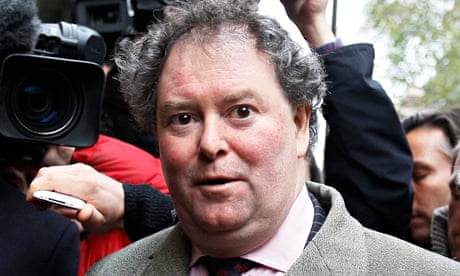A sweeping gagging order issued by an Australian court to block reporting of bribery allegations involving several international political leaders has been attacked by journalists and lawyers as "unacceptable" and "an abuse of legal process".
The extraordinary prohibition emerged from a criminal case in the Australian courts and relates to part of an ongoing investigation by prosecutors across three continents into allegations of multimillion-pound bribes paid in the banknote-printing industry.
Business executives at a company called Securency are alleged to have conspired to win lucrative contracts to print plastic notes in several south-east Asian countries allegedly by paying bribes to high-ranking politicians and officials between 1999 and 2005.
The Guardian in London is publishing a redacted version of the secret order which blots out the names of politicians who cannot be named and the details of the allegations involving them under the order issued on 19 June by the supreme court of Victoria in Melbourne.
"The rationale of this suppression order is unacceptable and cannot justify such absolute censorship for all news providers and netizens," said Benjamin Ismail, head of the Asia-Pacific desk for Reporters Without Borders. "This disproportionate order, which also aims at protecting the interests of certain leaders of south-east Asian countries, amounts to asking everyone to close their eyes on at least half of the case. It's senseless and counterproductive. We urge the authorities to place public interest first by immediately revoking this ban and allowing full transparency on this matter."
The judge who issued the ruling , the Hon Justice Hollingworth, said it was "to prevent damage to Australia's international relations that may be caused by the publication of material that may damage the reputations of specified individuals who are not the subject of charges in these proceedings."
The investigations have centred on a banknote company called Securency. Britain's Serious Fraud Office took an interest because Securency, at the time of the alleged corruption, was half-owned by Innovia Films, a manufacturing firm based in Cumbria.
Bill Lowther, a Cumbrian businessman who was on Securency's board, was acquitted by a London jury in 2012 of conspiring to bribe the former governor of Vietnam's central bank. On Wednesday the SFO said its investigation in Securency continues but it would give no further details. In Australia, the alleged corruption has been hugely controversial as the other half of Securency was owned by the country's central bank which is alleged to have hushed up the secret payments. A number of executives are being prosecuted by Australian police.
WikiLeaks has published a full version of the gagging order relating to the criminal case in Australia, but the mainstream media cannot trespass in this territory for fear of facing proceedings for contempt of court.
Mark Stephens, a leading media lawyer in London, said it was "an attempt to silence the world on a matter of enormous public importance" even though the court cited damage to Australia's international relations rather than national security.
"It is an abuse of legal process to allow a super-injunction to be used to cover up governmental embarrassment on matters of enormous public interest," he said.
